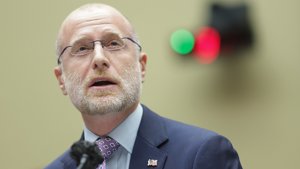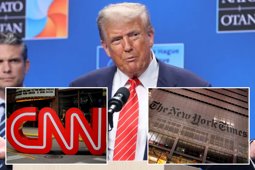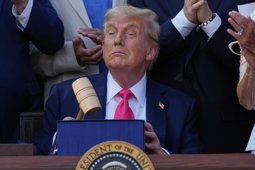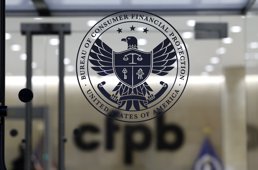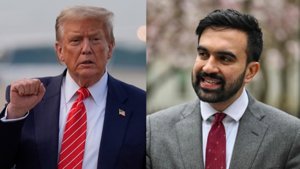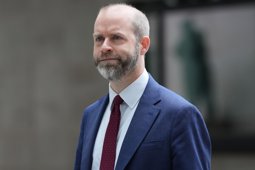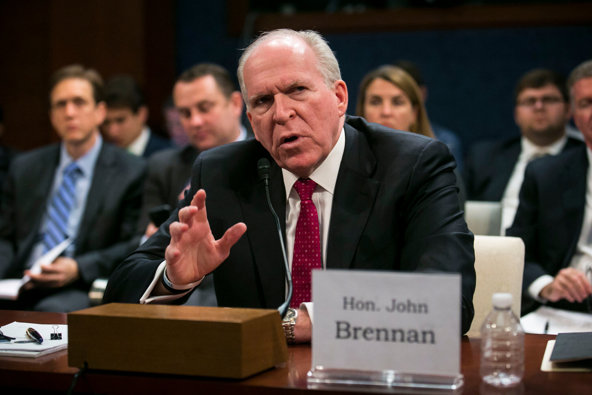
Brennan Under DOJ Probe for Russiagate Involvement
Former CIA Director Brennan under DOJ probe for Russiagate role as scrutiny mounts over his media claims and intelligence actions.
Brennan’s Media Role and Intelligence Influence Under Investigation
Former CIA Director John Brennan is at the center of an expanding Justice Department probe into his handling of the 2016 Russia investigation, bringing renewed attention to his influence as a prominent anti-Trump media commentator and intelligence official. Appointed by President Obama, Brennan served as CIA director from 2013 until President Trump assumed office in 2017, overseeing a turbulent period marked by allegations of Russian interference in the presidential election.
Brennan’s final year as CIA director was particularly significant, as he played a key role in launching the “Crossfire Hurricane” investigation into alleged links between Trump’s campaign and Russia. Throughout 2017 and beyond, Brennan maintained a visible public presence on major news networks, including CNN and MSNBC, before being named a paid contributor to MSNBC in March 2018. His public commentary frequently centered on allegations of collusion and conspiracy, including an August 2018 New York Times op-ed insisting that criminal conspiracy remained a real possibility for the Trump campaign.
The Justice Department’s current probe, according to officials, stems in part from evidence referred by current CIA Director John Ratcliffe and concerns over Brennan’s handling of the 2017 Russia collusion investigation. Particular attention is focused on Brennan’s influence over the Intelligence Community Assessment (ICA) process and his push to include the now-discredited Steele dossier in the 2017 report on Russian election interference. A declassified review earlier this month found “procedural anomalies” in the ICA’s creation and criticized deviations from intelligence standards, determining that including the dossier undermined the report’s credibility.
Controversial Public Statements and Legacy Under Fire
As the Mueller investigation unfolded, Brennan continued to advocate for the legitimacy of the Russiagate narrative, even as Special Counsel Robert Mueller ultimately concluded in March 2019 that there was insufficient evidence of a criminal conspiracy between the Trump campaign and Russia. In later media appearances, Brennan acknowledged that he may have received “bad information,” but he nonetheless continued to promote the theory of collusion and questioned President Trump’s motives and relationships with foreign leaders.
Brennan’s outspoken criticism extended to labeling Trump’s remarks as “paranoia, constant misrepresentation of the facts, and increased anxiety and panic.” He also used the term “treason” to describe the president’s conduct, a characterization that was widely echoed by journalists and pundits citing his former position as CIA director. However, Brennan’s credibility faced further scrutiny when he signed a letter in October 2020, along with 50 other intelligence officials, suggesting Hunter Biden’s laptop was likely a Russian information operation—a claim later contradicted by independent verification of the laptop.
The probe into Brennan’s actions comes as DOJ officials weigh potential prosecution for decisions made during and after his CIA tenure. The controversy has drawn renewed attention to Brennan’s briefings for President Obama and other top officials, including his handling of intelligence about the so-called “Clinton Plan” and communications with FBI Director James Comey and then-Vice President Joe Biden.
Brennan has downplayed the investigation, telling MSNBC viewers he is “shocked that individuals are willing to sacrifice their reputations, their credibility, their decency to continue to do Donald Trump’s bidding, on something that clearly is just politically based.”
As the Justice Department continues its review, the legacy of Brennan’s tenure and the impact of his public claims remain central issues in the ongoing debate over intelligence community conduct and accountability at the highest levels of U.S. government.

